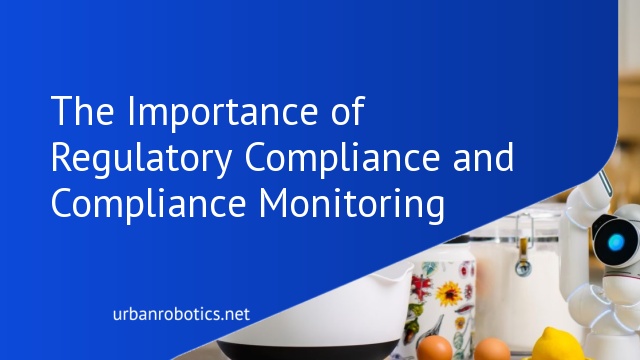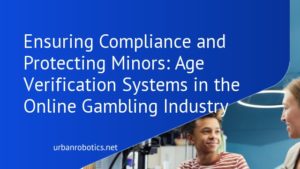In any industry, regulatory compliance and compliance monitoring form an increasingly important backbone of operations. As businesses, we hold a responsibility not just to our bottom line, but also to our stakeholders and the wider community. We must ensure that we work within the agreed-upon rules and guidelines of our particular sector – this need for ‘regulatory compliance’ is stronger than ever.
Moreover, compliance monitoring, which includes quality assurance tests, has a vital function. An idealized idea of a compliant operation is nothing without manual processes, real-time monitoring, and internal process obligations tied to regulatory monitoring.
Slice these complex concepts down to their core, and it’s simple. Compliance benefits everyone involved, supporting a fair, ethical, and competitive business environment. The COVID-19 pandemic has highlighted the need for stringency in these operations, whether in the food industry with health risks or in data-dependent sectors facing cybersecurity threats.
The Importance of Regulatory Compliance
Regulatory compliance is more than a box-ticking exercise. It resonates through everything a business does, shaping its interactions with customers, staff, and stakeholders. The food industry might worry about costly violations leading to product recalls. In contrast, a digital start-up will lose sleep over data breaches leading to reputational damage, and financial liability.
By respecting the opposite laws and ensuring ethical behavior, an organization safeguards its resources and reputation. Regular performance reviews, employee training, and robust reporting mechanisms help anticipate regulations and foster good governance.
Non-Compliance Risks
Non-compliance is a high-stakes game that few businesses can afford to play. Simply put, stepping outside regulatory boundaries has severe consequences, including:
- Legal risks: Violations of laws and regulations bring with them the potential legal system changes, penalties, and in the worst cases, lawsuits.
- Financial risks: Regulatory fines, repairing reputational damage, or compensating for negative impact can swiftly become an overwhelming financial burden.
- Reputational risks: Trust, once lost, is hard to gain back. Companies found to be non-compliant risk losing the confidence of their customers and stakeholders.
- Operational risks: Non-compliant activities can adversely impact business operations causing efficiency and profitability to plummet.
Businesses that understand these risks are more likely to place emphasis on maintaining regulatory compliance. After all, a compliant operation isn’t just about avoiding problems. Demonstrating compliance also reflects a well-governed, ethically mindful, and customer-focused business.
Your next two sections, “The Significance of Compliance Monitoring” and “Creating a Compliance Monitoring Plan” will further break down the processes involved and the practicalities of planning and implementing effective monitoring strategies.
The Significance of Compliance Monitoring
Just as compliance is essential, so is compliance monitoring. In essence, it is the watchdog of your compliance efforts, sounding the alarm when potential non-compliant activities surface. From real-time monitoring of operations to in-depth analysis of policies and procedures, it ensures businesses fulfill their regulatory and internal obligations.
Employing regulatory monitoring processes, such as ongoing compliance checks, compliance risk assessment, and managed SIEM Services, can serve as effective tools in legal and financial risk mitigation. Businesses have much to gain from strong regulatory oversight, from protecting assets and maintaining reputation, to increasing efficiency and gaining a competitive advantage.
Effective compliance monitoring:
- Helps avoid costly violations
- Showcases good governance through effective compliance oversight
- Protects resources and mitigates risks
- Encourages employee training and continuous learning
- Promotes a culture of anticipatory compliance
Adequate compliance monitoring isn’t a luxury – it’s a necessity. Given the increasing number, complexity, and severity of regulations (exacerbated by factors such as the COVID-19 pandemic), the ability to demonstrate accountability while ensuring ongoing compliance is more vital than ever.
Creating a Compliance Monitoring Plan (CMP)
In the face of these challenges, a compliant operation doesn’t happen by chance. The linchpin of a successful business is a strong and comprehensive Compliance Monitoring Plan (CMP). A CMP provides a roadmap for businesses to anticipate regulations, assess strengths and weaknesses, and propel continuous improvement in compliance performance.
Effective CMPs include:
- Clear objectives and goals, oriented around mitigating regulatory and legal risks.
- A review of existing policies and procedures, produced in consultation with HR procedures and company policies.
- Regular internal audits, operational reviews, and performance reviews
- Training programs for employees and stakeholders on regulatory changes
- Mechanisms for regular regulatory monitoring, such as auditing processes and AI-powered tools.
Today’s regulatory environment demands more than reactive ad-hoc measures. A CMP, with its forward-looking, robust mechanism for ensuring compliance, provides an effective shield against legal and financial ramifications of non-compliance.
The Benefits and Challenges of Compliance Monitoring
Like anything worthwhile, compliance monitoring has both benefits and challenges. On a positive note, businesses that invest in compliance monitoring can enjoy several key benefits:
- Risk Reduction: Effective monitoring can help detect non-compliant activities early, offering the chance to initiate corrective action before these issues escalate into costly violations.
- Increased Productivity: By illuminating inefficiencies and guiding improvements, monitoring can boost overall business productivity.
- Strong Reputation: Companies that commit to regulatory compliance and monitoring build trust with customers, employees, and stakeholders.
Compliance monitoring faces substantial challenges:
- Lack of Resources: The efforts involved in developing and maintaining an effective compliance monitoring plan can place significant demands on a business’s resources.
- Technological Hurdles: With the explosion of digital data and the need for real-time monitoring, businesses may struggle with mismatched technologies and ineffective tools.
- Complex Regulations: Interpretation of regulations can be a significant challenge, particularly for businesses operating across international boundaries or in highly-regulated industries.
Despite their complexity, these challenges aren’t insurmountable. Adequate allocation of resources, training of dedicated compliance officers, and investment in the right technology can help businesses overcome these hurdles.
In the changing landscape of today’s business environment, one thing remains constant: the importance of regulatory compliance and compliance monitoring. It’s a vital part of any business’s operations, protecting customers, upholding ethical practices, and maintaining its reputation.
By staying on top of regulatory changes, continuously reviewing and improving compliance performance, and proactively addressing areas of non-compliance, businesses can position themselves for success in their respective industries. Compliance isn’t just about avoiding penalties – it’s about demonstrating an unwavering commitment to maintaining a legal, ethical, and customer-centric operation.
Strong deterrence against non-compliance, high fines, and regulatory pitfalls. Compliance is a vast domain that involves everyone in an organization. From compliance officers to employees, everyone has a part to play in ensuring that businesses meet their compliance requirements, and even exceed them. Robust compliance monitoring and a comprehensive CMP will solidify a company’s commitment to integrity, creating a stronger, more resilient business.
So, make a smart move. Invest in tools to improve monitoring and book a demo with RegAsk to see how our compliance monitoring software ensures your business is always one step ahead. From regulations and standards to real-time monitoring, understand the importance of maintaining regulatory compliance and how AI-powered solutions can change handling complex compliance activities. Because compliance is more than a necessity – it’s good business practice.





